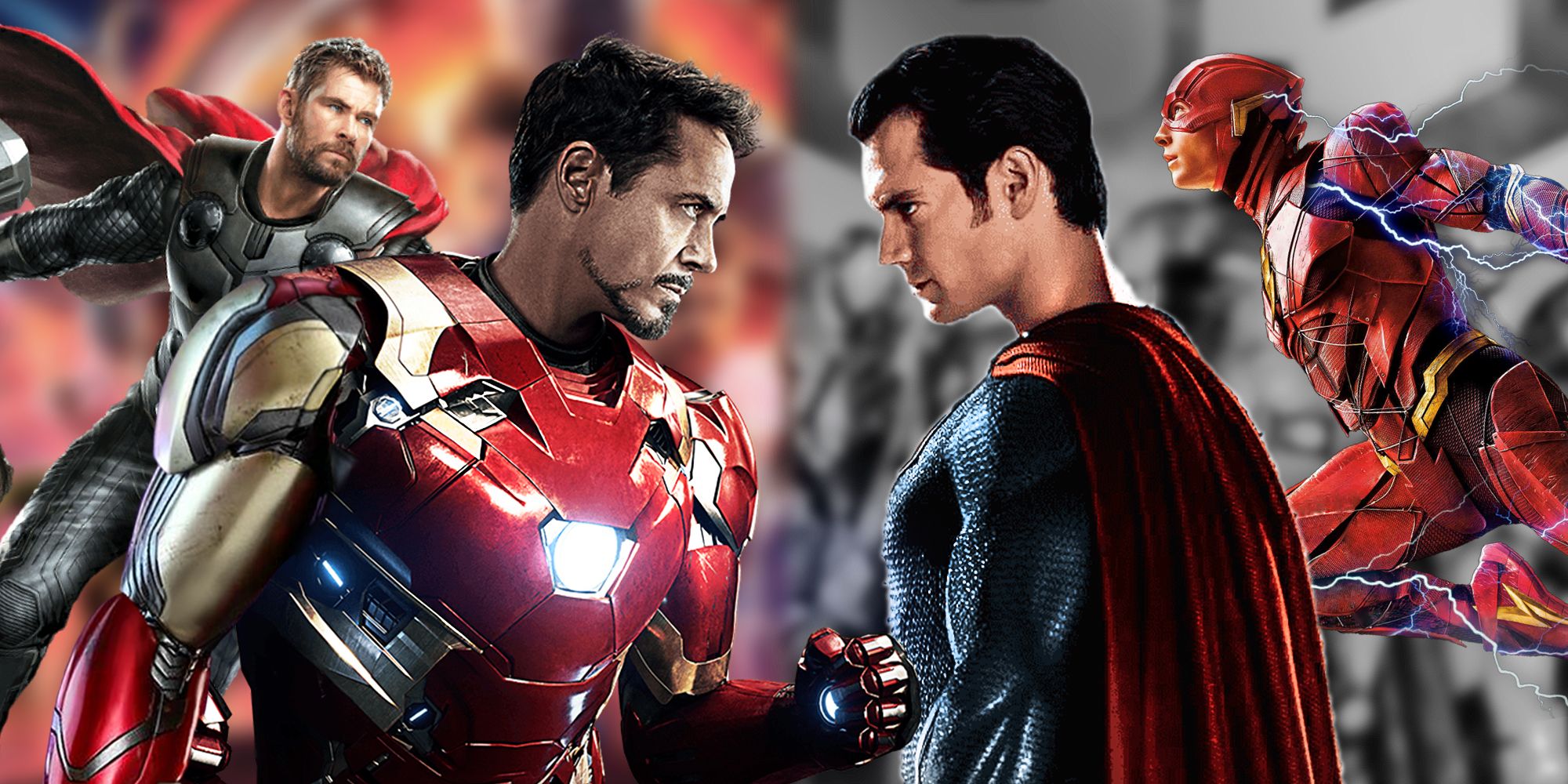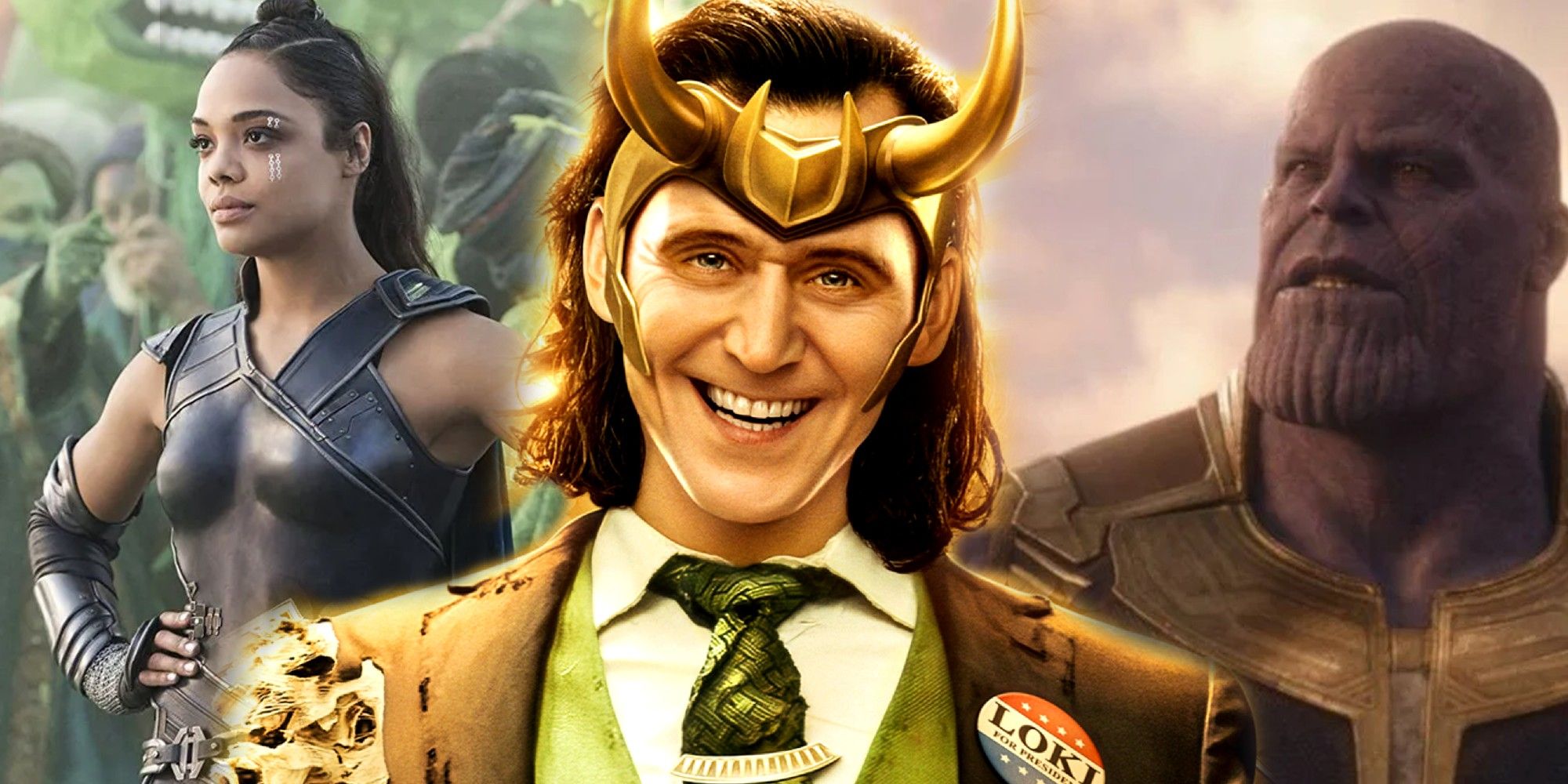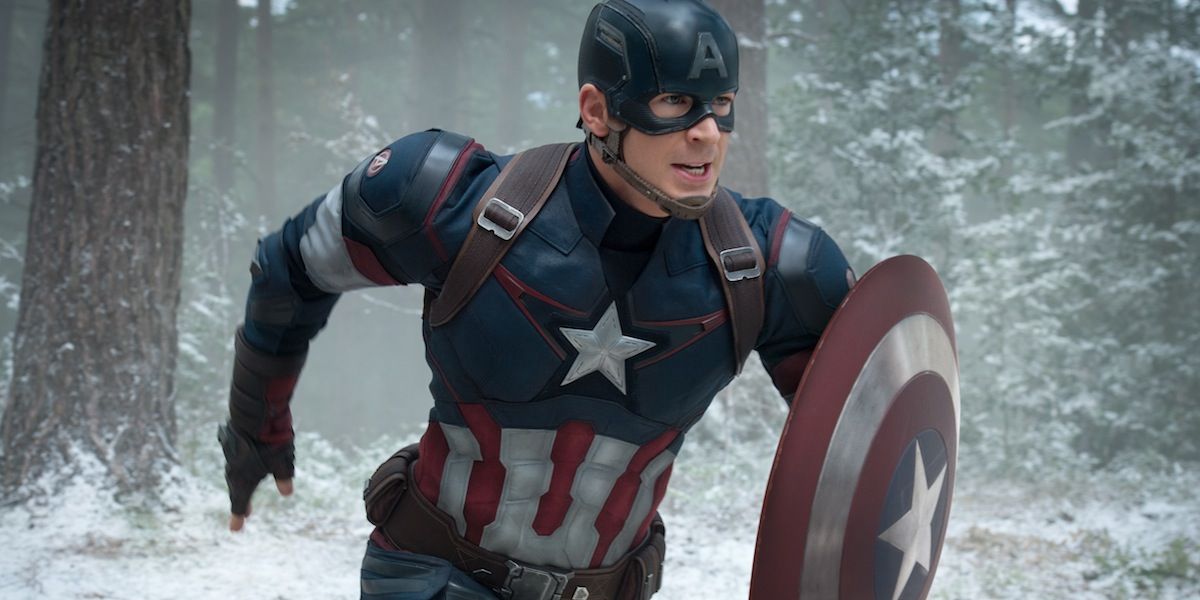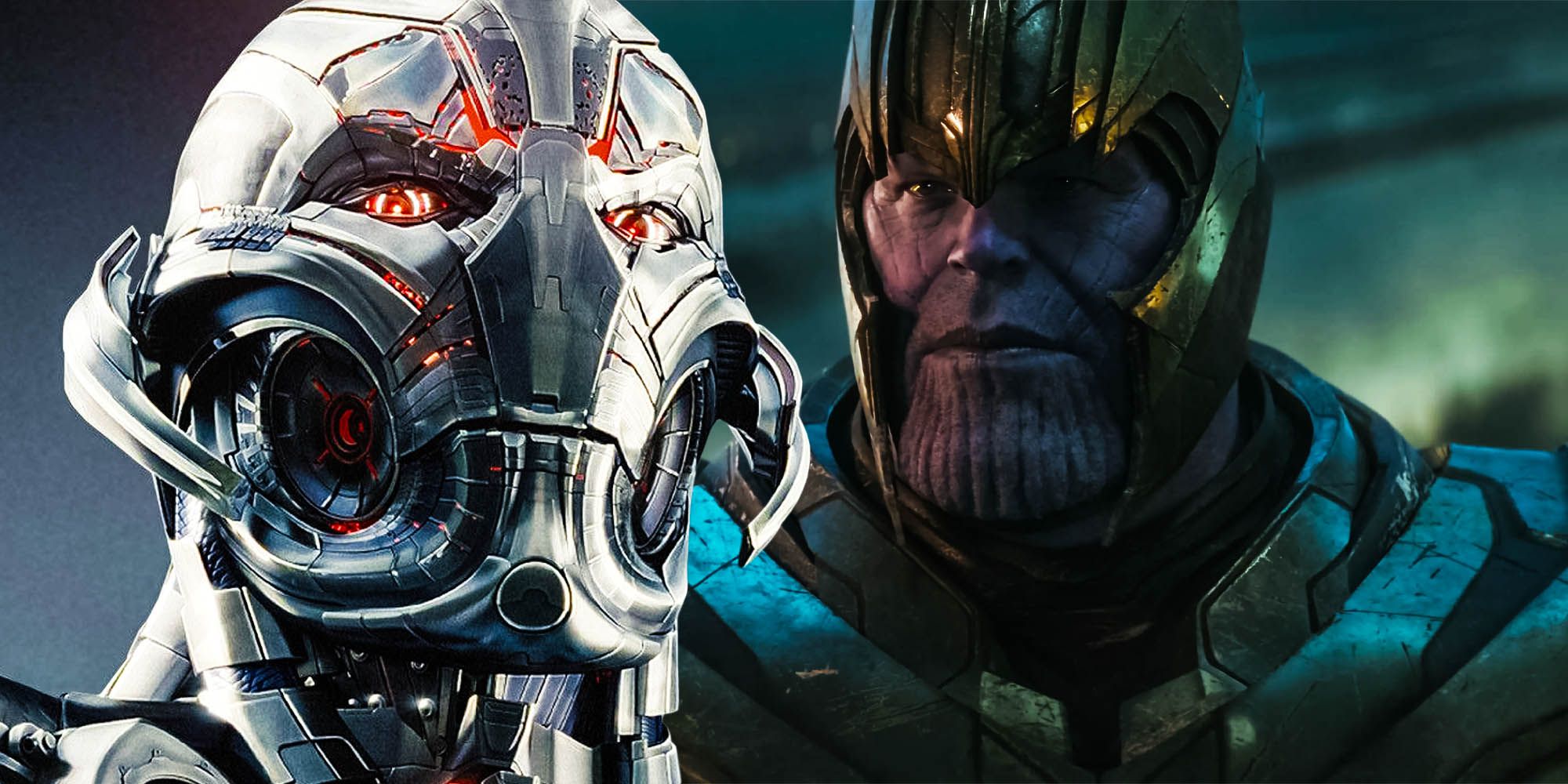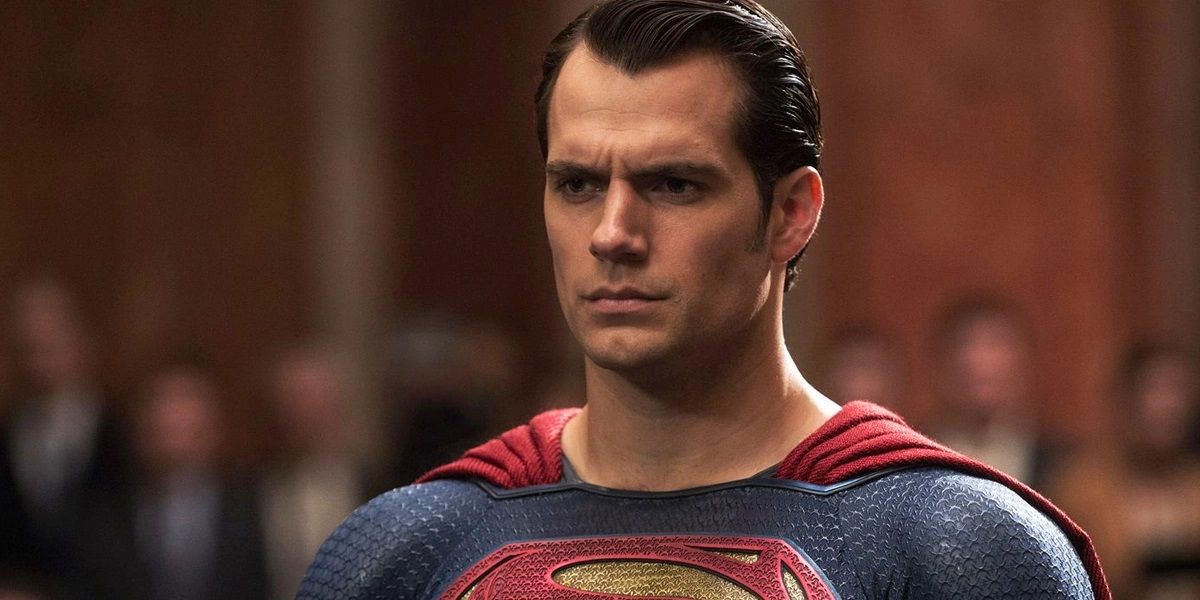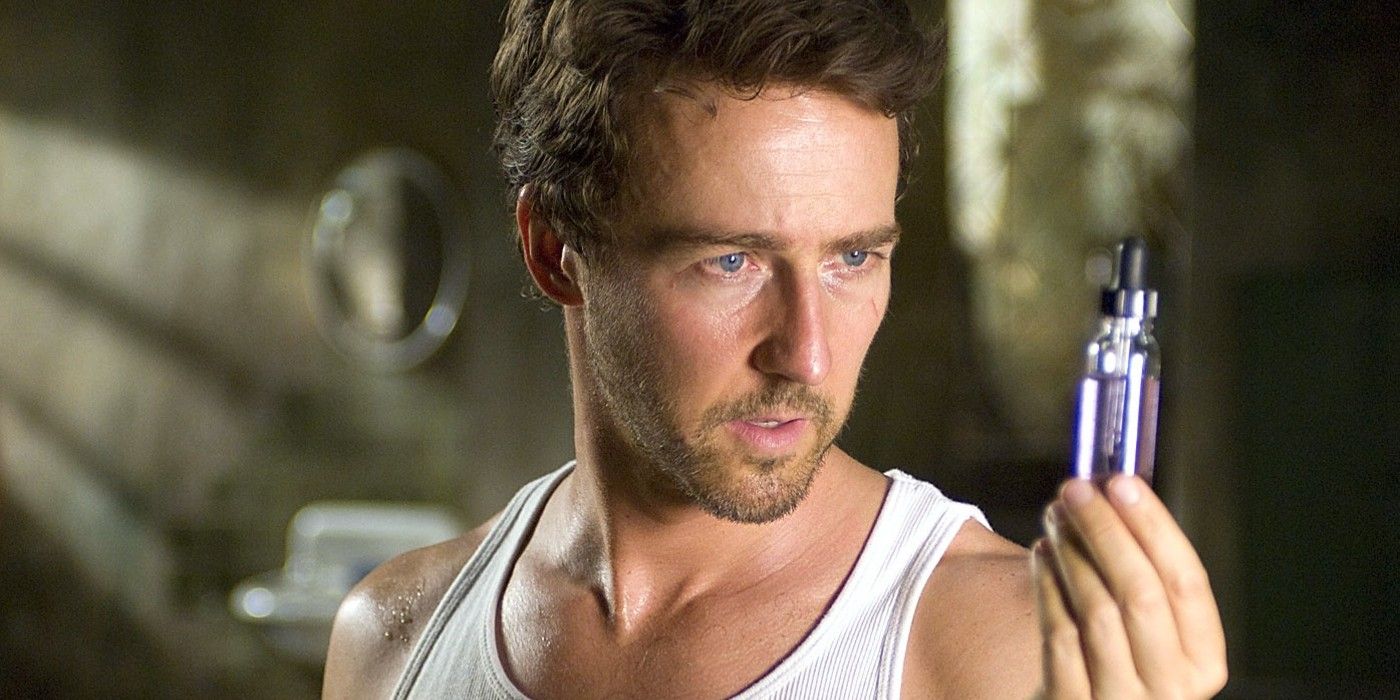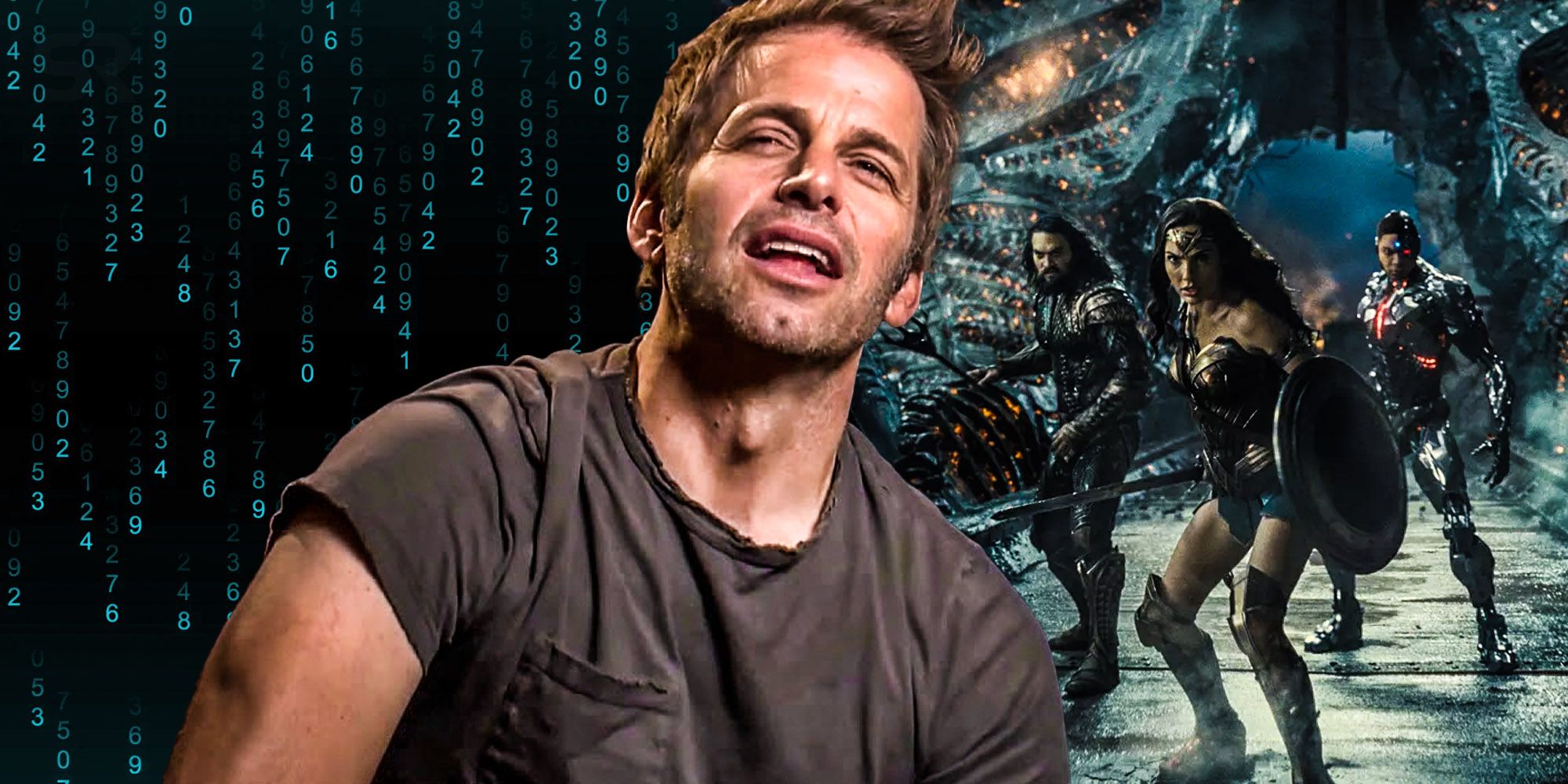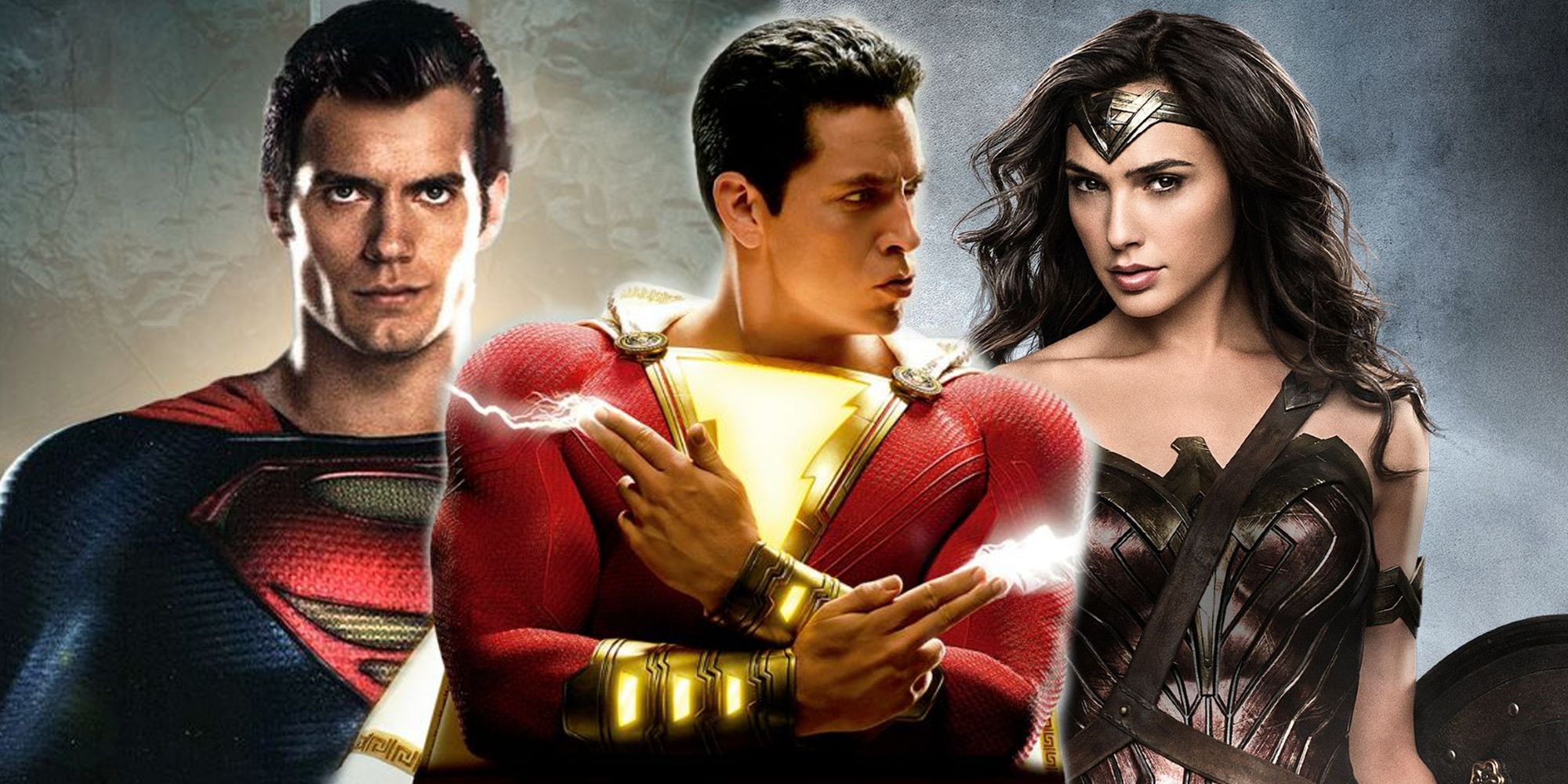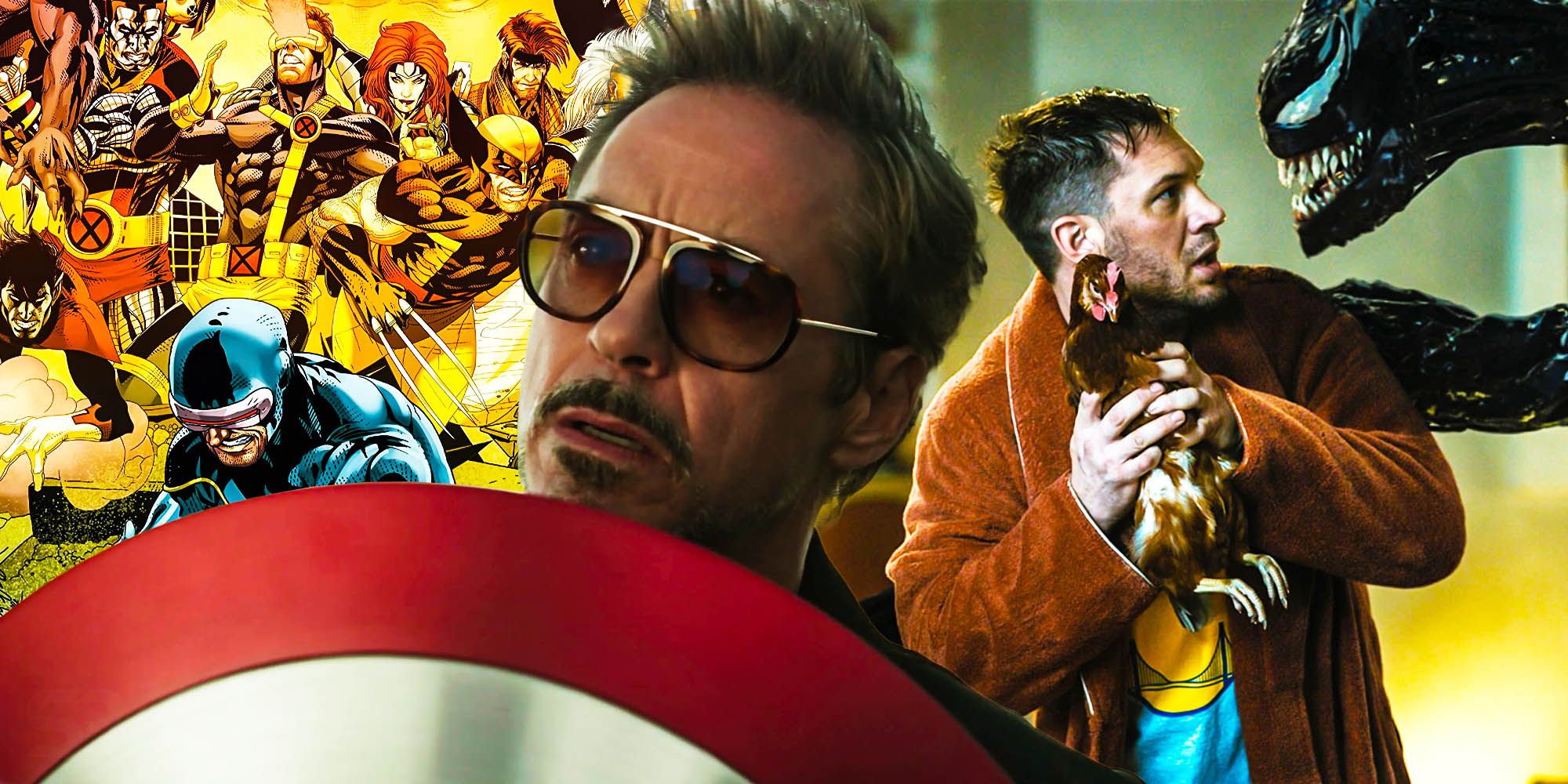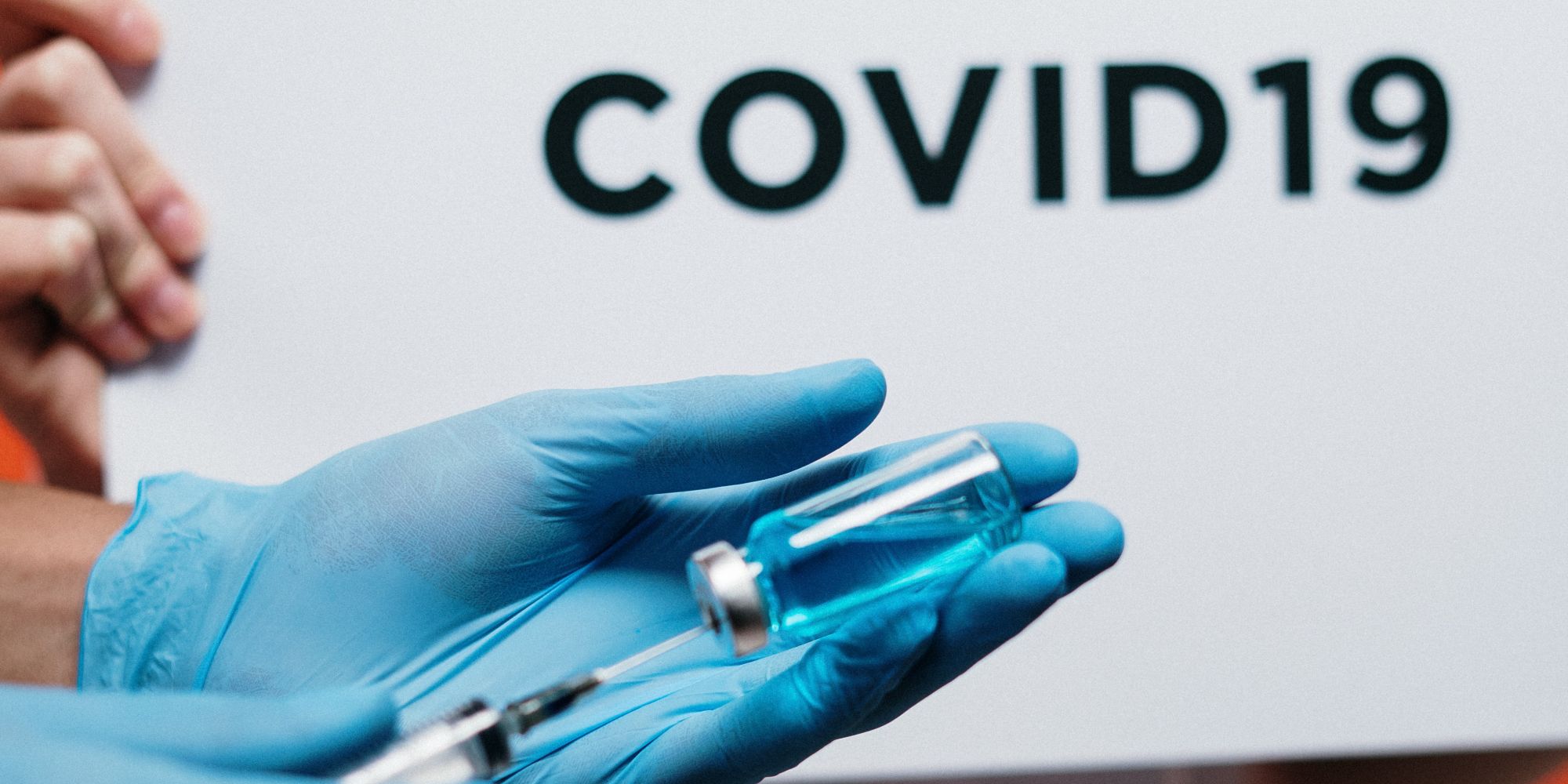As the two juggernauts of comic book content, it's no surprise that the Marvel Cinematic Universe and the DC Extended Universe are routinely compared - and that Marvel seems to be coming out on top. Iron Man, and the resulting launch of the MCU, is often credited with boosting the superhero genre to the level it is today (although the original X-Men film series deserves some of that credit as well), its films are more consistently lauded, and its universe often feels more cohesive and carefully planned.
However, neither the MCU nor the DCEU are perfect, and when it comes to the larger issues in these franchises, a lot of the big problems are the same for both comic universes. There seem to be some struggles that neither has figured out quite how to handle, and others that are true for more than just the world of comic book movies, too.
Balancing Accessibility And An Expanded Universe
One of the biggest issues that builds as time goes on is the ability to keep individual movies appealing and accessible to new fans - who have not seen every prior movie, and who may not want to watch hours of movies to catch up. Each of the films in these universes has some connection to the others, and (especially in the MCU) builds to team-ups and big-bad-battles. However, new fans can find the history offputting, and not want to have to do 'homework' in order to understand and enjoy a film. Making these films stand alone and build into a larger universe at the same time is no small feat.
At the moment, it seems that Marvel is doing a reasonable job of keeping many films accessible and connected, but the DCEU is doing a little better with addressing this issue, potentially because their universe is still smaller. However, the establishment of a DC multiverse helps, and with Loki now introducing an MCU multiverse, this may become easier to handle for Marvel, too.
Superhero Fatigue
While there's no doubt that superhero movies are still incredibly popular, and box office figures show no major drop in their popularity (taking into account the effect of the pandemic), it is still true that with the growth of the superhero genre, audiences want more than a simple super-story.
Straightforward origin-story leading to big fights are less popular than films with a more unique angle, and now that most of the flagship characters from the comics have had at least one film, both Marvel and DC are having to dig deeper into their vaults and use less well-known characters to keep expanding their universe.
The Villain Problem
Both Marvel and DC are known for having a 'villain problem', with bad guys that are not as engaging, well-thought-out, or complex as the heroes. Marvel has been roundly criticized for two-dimensional villains that are easily killed off, while DC has a similar issue with forgettable and poorly-adapted bad guys. Doomsday, in particular, was hated by fans and critics alike, while other films like Aquaman and Suicide Squad have barely-there villains that the audience struggles to care about.
Both Marvel and DC would benefit from fewer disposable villains, who are killed off in a first outing, and by setting up more multi-film arcs for their heroes and villains both. The comics, of course, do this well, and villains have histories and stories just as interesting as the heroes - something that should translate well to the big screen.
Lack Of Diversity In Superhero Leads
It took Marvel nearly a decade of constant releases to finally produce a female-fronted superhero movie (Captain Marvel), and while DC was much quicker off the mark with the release of Wonder Woman, both universes are primarily led by straight white male characters. Of course, part of this can be considered an issue with the source material, as many of the biggest names in comics are white male heroes, but this is still an area that needs to be addressed in both universes.
Thankfully, things are shifting for both - after Captain Marvel, Marvel released the long-awaited Black Widow movie, as well as Shang-Chi and the Legend of the Ten Rings. In the DC universe, Harley Quinn and Wonder Woman are two major pillars of the franchise, although fans would like to see more POC superheroes take the lead with solo films (beyond Aquaman, played by Native Hawaiian Jason Momoa).
Struggles With Continuity
An issue that is almost guaranteed with franchises this large is one of continuity - especially as bigger villains and crises threaten Earth. It becomes increasingly difficult to keep every detail and timeline accurate, and explain why superheroes were not joining the big fights of the earlier films. In addition, issues of actors leaving (like Ben Affleck dropping out as Batman, or the original Hulk, Edward Norton, leaving the franchise) can cause issues with continuity and consistency for fans.
Marvel and DC are starting to play with multiverses which will go a long way to helping with this, as new stories can simply take place on a different Earth. DC is also significantly less concerned with a tight continuity in the way that Marvel has been, which fans are happy to accept. However, some of the cracks here are still starting to show, with situations like the upcoming Eternals film having to write in reasons for these powerful figures to have been missing during the battle with Thanos - reasons that feel a little bit flimsy.
Creative Struggles Between Directors And Executives
With such huge franchises, and so many directors and actors working toward a single universe, it's no surprise that there are some issues with communication and working together. Whether it's the lawsuit between Scarlett Johansson and Disney over Black Widow's online release, the pressure for the Snyder Cut, or James Gunn's firing and re-hiring for Guardians of the Galaxy, there have been plenty of clashes behind the scenes for these worlds.
This doesn't always have to create problems for audiences, of course - and in Gunn's case, led to his availability to create The Suicide Squad, which can only be considered a good thing - but many times, they do. Issues of creative differences can lead to choppy or confusing films, dropped plot points, and disappointing adaptations. Of course, these are issues that are not limited to just superhero films, but the sheer size of these projects often exacerbates the effect.
A Consistent Vision
DC and Marvel seem to have taken very different approaches to the issue of trying to maintain a consistent vision across a massive connected universe. While Marvel keeps a tight hold on their creative vision, and produces films and TV series that have the same essential feel to them, DC has chosen to create a range of films that feel very different. Snyder's Justice League movies are much sadder, darker, and grittier than the bold playfulness of The Suicide Squad and Shazam, for example.
However, both approaches come with their own pitfalls, too. By keeping such a clear and consistent style from movie to movie, Marvel limits its audience to those who enjoy the light and colorful style of action film (not that their box office figures are harmed by this!). DC, meanwhile, has created a universe that is canonically connected, but that feels disjointed.
Bringing Together Existing Properties
Marvel certainly struggles with this more than DC, thanks to the fact that it has only recently been able to regain the rights to the X-Men, Spider-Man, and Fantastic Four in different ways. However, DC also has to deal with deciding whether or not to fold in the wildly popular Arrowverse characters, or other DC-fronted films. In both cases, the multiverse comes to the rescue once again, with these franchises choosing to explain away various discrepancies with softer reboots, different universes, and more. Of course, Marvel has yet to officially bring mutants on board, but with Loki leading into the Multiverse of Madness, it is assumed that this will be the way to do so.
COVID Delays
Definitely not limited to superhero movies, the COVID-19 pandemic has wreaked havoc on film releases, and as a result, box office figures. The Suicide Squad, despite being the most-streamed DC film on HBO, was a box office flop, failing to make back production budget. Black Widow, despite being a film that fans had been asking for for years, was released on Disney+, breaching contract, leading to a lawsuit and disappointing box office numbers. While Shang-Chi suggests that this is slowly starting to bounce back, it's clear that the delays and disruptions in filming and release will have had a significant impact on both universes, and one that the true lasting impact of may not be seen full for years to come.

